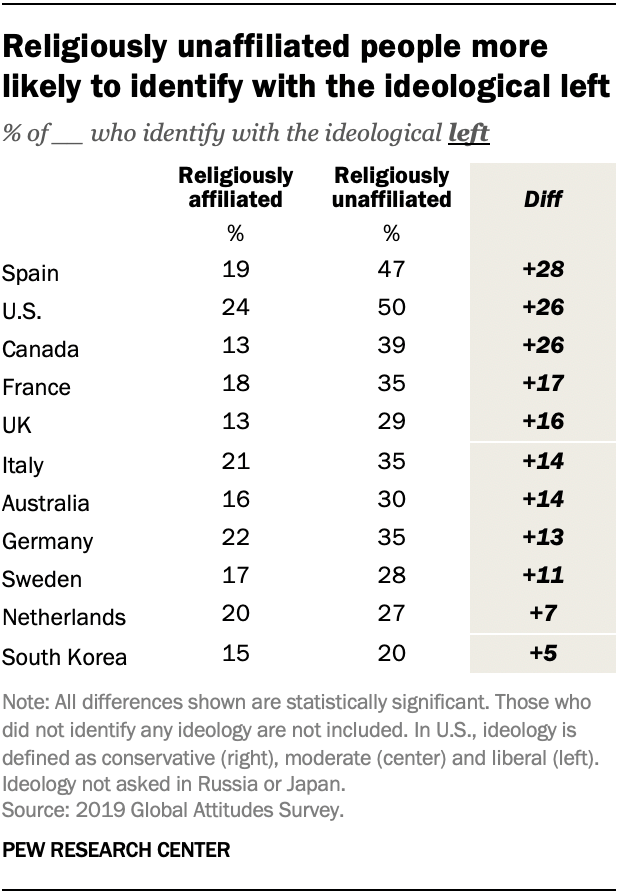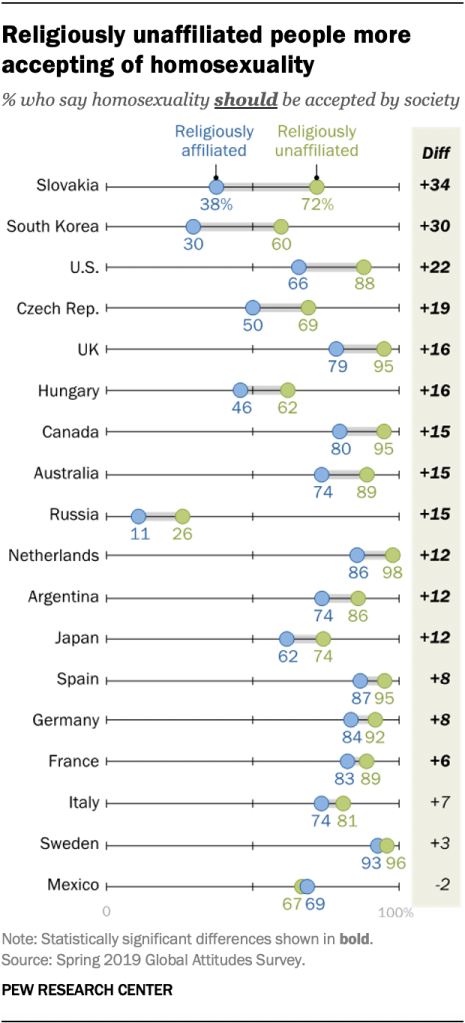Factchecked: religious people are more conservative, worldwide
Surprise: the world is not becoming more secular
It’s long been a truism: religious people are more conservative. But does it hold beyond the Western World? And how does that translate to specific issues, such as civil marriage?
Pew Research has done us all a favour by surveying a number of countries to work out to what extent these beliefs about belief are true. And, in the process, we get to see how Australia ranks.
The Pew survey of 34 countries comes with a surprising overall result. The “nones” – the religiously unaffiliated – make up 16 per cent of the global population, and are expected to increase in real numbers from 1.17 billion in 2015 to 1.2 billion in 2060, according to Pew Research Center projections. But they will decrease as a proportion of the world population because religious groups will increase faster; the “nones” are expected to fall to 13 per cent over the same time period, according to the Pew Research centre.
Pew Research is a Washington based research institute that is part of the Pew Charitable Foundation. It has a good reputation for surveying opinion on specialist areas including religion and media.
“Across the complete set of 34 countries surveyed in 2019, the share of religious “nones” varies, from less than one per cent of the population in six countries (India, Indonesia, Lebanon, Nigeria, the Philippines and Tunisia), to around three-in-ten in the United States (27 per cent), Germany (30 per cent), Spain (31 per cent) and Canada (32 per cent), to roughly half the populations in South Korea (49 per cent), Japan (51 per cent) and the Czech Republic (53 per cent),” Pew reports.
Pew found that religiously unaffiliated people are more likely to identify with the ideological left.
The gaps in the table are statistically significant. Australia joins Spain, the US, Canada, France, the UK, Italy, Germany and Sweden as nations with a double digit difference. Pew reports that in some other countries, “affiliated and unaffiliated adults are about equally likely to place themselves on the ideological left in several countries, including Argentina and Mexico.”
On this survey, Southern Baptist commentator Albert Mohler suggested the results for these Latin countries may reveal the presence of a left-wing form of Christianity – Liberation Theology – in those nations.
The reverse possibly holds true, in the countries which show a gap between the “nones” and the “religious” in politics; conservative forms of religion would influence the result.
The issue of whether “homosexuality should be accepted by society” was also surveyed by Pew. The survey found that people who said religion was important to them were less likely to choose to agree.
The results for Australia indicate that a majority of religiously “affiliated” people surveyed did agree that homosexuality should be accepted in society.
Two different questions – such as about the issue of same-sex marriage, or whether homosexuality was approved of by their religion – might have given a modified result.
This survey shows the “Census Christians” want society to have acceptance of homosexuality. In the survey, the alternative option was that homosexuality should not be accepted in society which might imply some form of legal discouragement.






